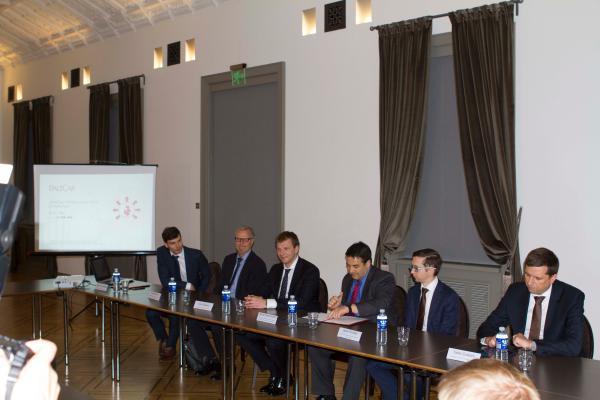
The European Investment Bank (EIB) has committed to investing EUR 20m in the EUR 100m BaltCap Infrastructure Fund, which finances infrastructure development across Lithuania, Latvia and Estonia. The Fund was launched by BaltCap, the largest private equity and venture capital investor in the region. The EIB support is backed by the European Fund for Strategic Investments (EFSI), the central pillar of the European Commission's Investment Plan for Europe, the so-called "Juncker Plan", launched to overcome current market gaps and mobilise private investment in the EU.
The BaltCap Infrastructure Fund will primarily focus on providing development capital for transport, energy and energy efficiency infrastructure projects in the Baltic States. The Fund’s investment strategy is based on the highest environmental, social and governance standards and climate change mitigation criteria. In particular, the Fund is targeting equity investments in energy infrastructure projects: renewable energy generation such as wind, solar and biomass, and energy efficiency projects such as public lighting. Energy generation from the underlying investments will partially displace fossil fuel-fired generation and the associated emissions of CO2, NOx and SO2. The Fund also aims to invest in transport infrastructure such as airports and roads, as well as social infrastructure such as schools, universities, hospitals.
The BaltCap Infrastructure Fund has been set up for a duration of 20 years and is expected to mobilise EUR 480m worth of infrastructure investment on the ground. The implementation and operation of the Fund investments will generate significant employment opportunities in the region (around 4,000 direct person-years during construction and 245 direct full time jobs during operation).
With its commitment of EUR 20m, the EIB has become the anchor investor of the Fund. Other investors include: the Nordic Environment Finance Corporation, the pension funds of SEB, Swedbank and LHV, Swedbank Life Insurance, as well as other institutional investors.
EIB Vice-President Ambroise Fayolle, whose responsibilities include EFSI, said: “Mobilising private financing for strategic investments is the main goal of EFSI, and we therefore welcome the cooperation with the BaltCap Infrastructure Fund as it is the first infrastructure fund in the Baltics with the goal of catalysing private investors to finance infrastructure projects. This Fund is an answer to the rising investment needs in the transport, energy efficiency, and renewable energy sectors in the region. Particularly, it addresses the continuing and potentially growing demand for equity capital for the implementation of infrastructure projects. It thus encourages economic growth by promoting the competitiveness of the Baltic region and improving the business environment. What is equally important, the Fund will create new jobs and – by its focus on renewable energy and energy efficiency – significantly contribute to the climate change agenda”.
Lithuanian Minister of Finance Vilius Šapoka said: "As one of the Governors of the European Investment Bank, I am highly delighted with this investment attracted to our region. I believe that this alternative source of financing will not only contribute to the promotion of the Lithuanian economy and enhancement of its competitiveness – as well as international, institutional and private investment growth – but will also positively affect the further development of private and venture capital markets in the Baltic region, strengthening the partnership and cooperation between the Baltic States."
European Commission Vice-President Jyrki Katainen, responsible for Jobs, Growth, Investment and Competitiveness, said: "Investment in infrastructure in Europe is improving, but we still need to do more. This agreement to support the BaltCap Infrastructure Fund is a positive example of what we can do through the EFSI in order to mobilise such investments. I am particularly pleased that this agreement will support projects involving energy infrastructure, renewable energy and energy efficiency. By supporting investments in these sectors, we are helping to lay the foundation for future economic growth."
Šarūnas Stepukonis, BaltCap Infrastructure Fund partner, said: “Infrastructure development is one of the key priority areas for the region to improve its competitiveness and independence. The Baltic countries are facing an infrastructure funding gap of EUR 6bn over the next five years, which is expected to become even larger after the 2014-2020 EU funding programme. Physical infrastructure such as electricity, heating, railways, roads, ports and airports suffer from a substantial deficit in terms of capacities and efficiencies.” Mr Stepukonis added concerning the purpose of launching a new fund: “With strong support from international financial institutions and local pension funds we are able to address the infrastructure funding gap and help Lithuania, Latvia and Estonia to realise their infrastructure investment programmes. This is the first time in the region that local pension fund assets will be deployed to develop infrastructure for future generations”.

